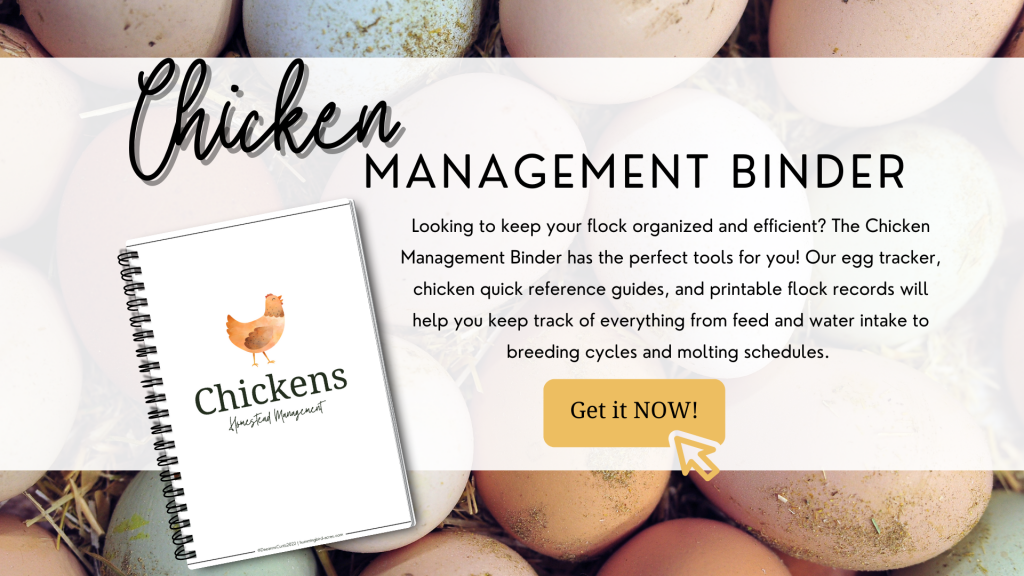When Will My Chicken Start Laying Eggs
If you’re like me, you’re probably wondering when your chickens are going to start laying eggs. In this article, I’m going to tell you the signs that indicate that eggs are coming and give you a few tips on how to make sure you flock is healthy and ready to produce.
The answer to this question varies based on a number of different factors, including the breed and age of the chickens, as well as environmental conditions like temperature and light exposure. Generally speaking, most chickens will start laying eggs between 6-12 months of age, though this can vary depending on the breed and other factors.
Disclosure: Some of the links below are affiliate links, meaning, at no additional cost to you, I will earn a commission if you click through and make a purchase.
What age do chickens usually start laying eggs?
Chickens usually start laying eggs when they’re around 18 to 20 weeks old. However, this can vary depending on the breed. For example, chicken breeds that are known for being good egg-layers, such as Leghorns and Orpingtons, will usually start laying sooner than chicken breeds that don’t lay as many eggs, such as Cochins and Brahmas.
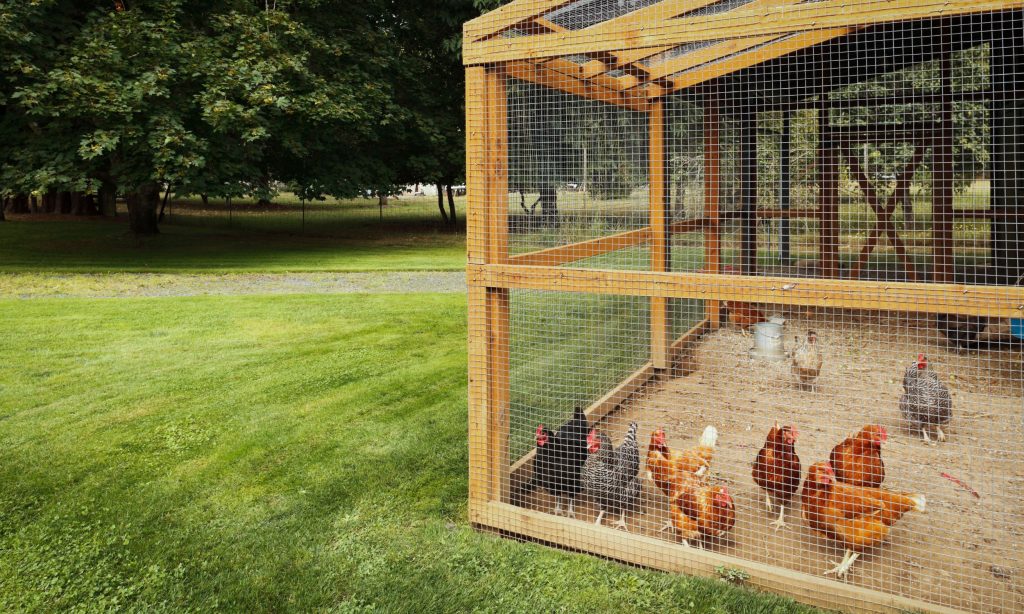
Chicken breeds and egg-laying
Chickens are a versatile bird, and there are many different chicken breeds to choose from depending on what you’re looking for. Some chicken breeds are better for egg-laying, while others are better for meat production. If you’re interested in keeping chickens for their eggs, then you’ll want to choose a chicken breed that is known for being good at egg-laying.
Some of the best chicken breeds for egg-laying include the Rhode Island Red, the Plymouth Barred Rock, and the Leghorn. These chicken breeds can start laying eggs at around six months old, and they can lay up to 300 eggs per year.
If you are looking for a great chicken to have around your kids check out Best Chicken Breeds for Kids.
If you’re looking for a chicken breed that is both good at egg-laying and meat production, then the Jersey Giant is a good choice. This chicken breed can lay up to 200 eggs per year and can reach weights of up to 15 pounds. No matter what your needs are, there is sure to be a chicken breed that’s right for you.
Time of year and egg-laying
Chicken laying eggs is affected by the amount of daylight. In the spring and summer, when there are more hours of sunlight, chickens lay more eggs than in the fall and winter.
This is because longer days stimulate a chicken’s pituitary gland, which increases egg production. Some chicken breeders use artificial lighting to extend the day length and keep chicken laying eggs throughout the year. However, this can be expensive and may not be necessary if you only want your chicken to lay eggs for personal consumption.
If you live in an area with long days during the summer, your chicken will likely lay eggs year-round without any extra effort on your part.
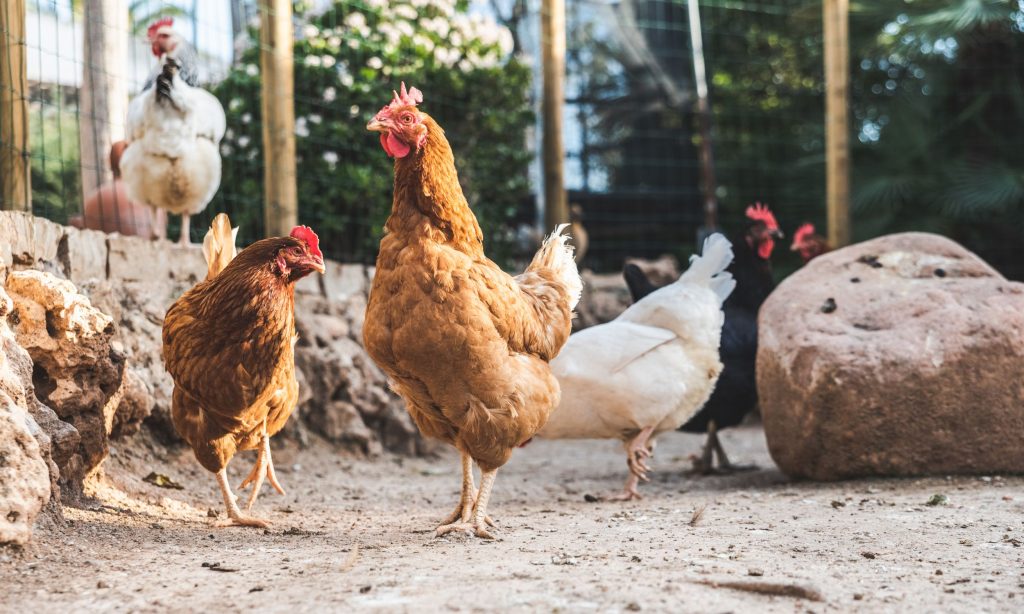
5 SIGNS A CHICKEN WILL START LAYING EGGS SOON
1) Enlarged Reddening Combs and Wattles
One of the surest signs that a chicken will start laying eggs soon is enlargement and reddening of the chicken’s combs and wattles. The comb is the fleshy protuberance on top of a chicken’s head, and the wattles are the fleshy lobes that hang down from either side of the chicken’s head.
As a chicken approaches sexual maturity, its body starts to produce more estrogen, and this increased hormone level causes the combs and wattles to become larger and more deeply colored.
In most chicken breeds, hens have red combs and wattles, while roosters have white or pale-colored combs and wattles. However, there are some chicken breeds in which both sexes have reddish combs and wattles.
If you see your chicken’s combs and wattles beginning to enlarge and redden, it’s a good indication that she will start laying eggs soon.
2) Start Exploring the Nesting Box Area
One of the first signs that a chicken will start laying eggs soon is that she will start to explore the nesting box area. She may not actually start using the nest yet, but she will spend more time in that part of the coop, checking it out and getting familiar with it. This is a good time to make sure the nest is clean and comfortable, as she is more likely to start using it once she feels it is a safe and inviting place.
3) She May Get Louder
One of the first signs that a chicken will start laying eggs soon is that she may get louder. This is because she is trying to attract a mate. Chickens are social creatures, and they want to find a partner to share their life with. Once she has found a mate, she will start to lay eggs.
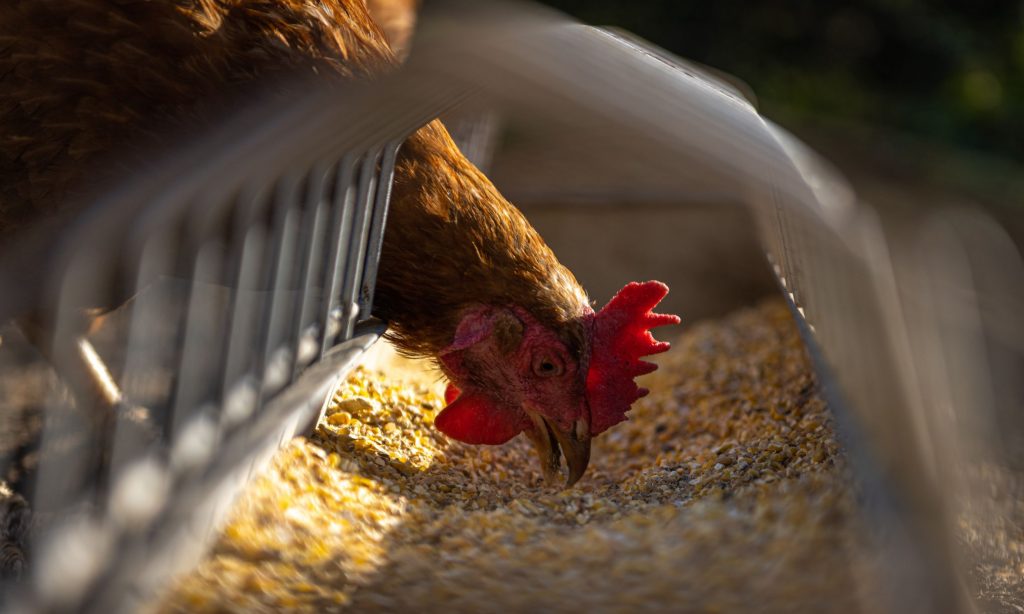
4) Increased Appetite
Another sign that a chicken is getting ready to lay eggs is that she will start to eat more. This is because her body needs extra nutrients to produce eggs, so she will have a higher metabolism and be hungrier than usual. If you notice your chicken eating more and spending more time in the nesting area, it’s a good indication that she will be starting to lay eggs soon.
5) The Submissive Squat
One of the surest signs that a chicken is getting ready to lay eggs is the submissive squat. This is when the chicken squats down low to the ground and spreads its wings out to the sides. The chicken will usually hold this position for a few seconds before getting back up again. If you see your chicken doing this, it’s a good indication that she will start laying eggs soon.
Another sign to look for is pelvic thrusting. This is when the chicken quickly lowers her body down to the ground and then raises it back up again in a quick, thrusting motion. This is often done in conjunction with the submissive squat and is another good indicator that laying eggs is on the horizon.
What Can Affect Egg Production?
Timing and Season
But what factors can affect how many eggs your chicken lays? Timing and season are two important considerations. Most chickens will begin laying eggs when they reach adulthood, which is typically around six months of age.
However, egg production can decline during the winter months, when days are shorter and temperatures are cooler. As a result, you may get fewer eggs during the winter than you do during the rest of the year.
Chicken Pecking Order
Chickens establish a hierarchy within the flock, with each chicken having a specific rank. This hierarchy can influence how often a chicken lays an egg, with chickens at the top of the pecking order being more likely to lay eggs on a regular basis.
Diet, Age, & Health
Other factors that can affect egg production include diet, age, and health. For example, older chickens typically lay fewer eggs than younger chickens, and chickens that are not getting enough nutrients may also produce fewer eggs. Ultimately, there are a number of factors that can influence a chicken’s egg-laying abilities, so it’s important to be aware of all the possible variables.
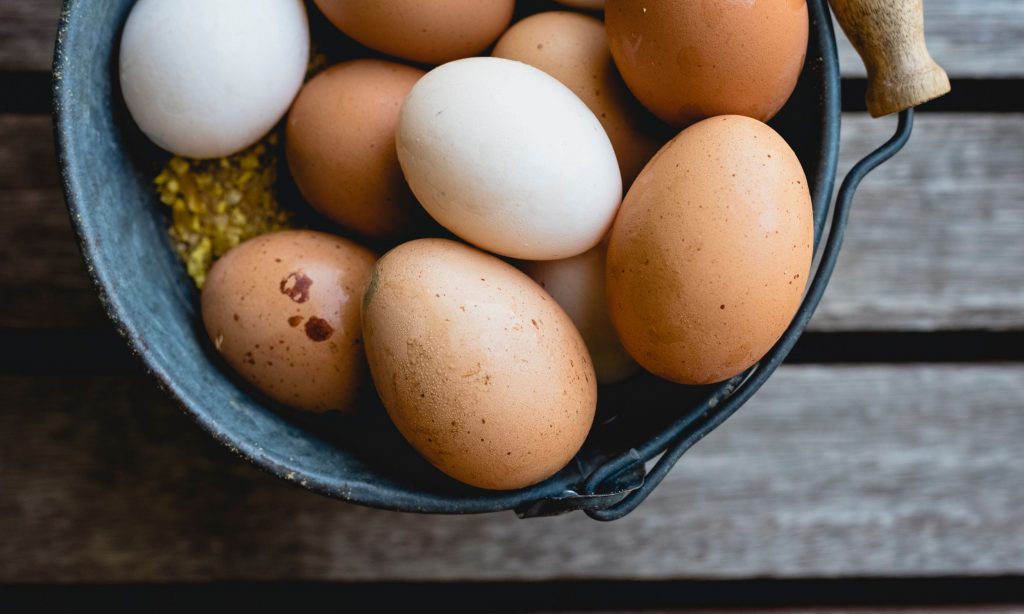
How To Raise Healthy Chickens
Chickens are a great addition to any farm or homestead. Not only do they provide delicious eggs, but they also help to keep pests under control. However, chickens can also be susceptible to disease and illness if they are not properly cared for.
To ensure that your chickens stay healthy, there are a few simple steps you can take. First, make sure that they have access to plenty of fresh water. Chickens require a lot of water, and contaminated water can quickly lead to illness.
Second, keep their living area clean and free of debris. A chicken coop that is cluttered and dirty is the perfect breeding ground for disease.
Finally, chicken feed should be kept clean and free of contaminants. Store chicken feed in a cool, dry place, and check it regularly for mold or insects.
By taking these simple precautions, you can help your chickens stay healthy and Happy layers for many years to come!
You’ll Have Eggs Before You Know it!
So, there you have it. With a little bit of patience and good care, your chickens should start laying eggs within their first year. Keep in mind that different breeds will mature at different rates, so if you’re unsure about when to expect your hens to start producing eggs, check with your local poultry expert or do some research on the specific breed of chicken you’re raising. Thanks for reading and we hope this article was helpful!
You may also enjoy these related articles:
- What Chickens Can Teach Our Kids
- Best Chicken Breeds for Kids
- How to Create a Chicken Garden
- Raising Chickens for Beginners
Did you enjoy this article? Want to hear more? Stay in touch! Sign up below to receive weekly tips and inspiration for your homestead.
[convertkit form=3733554]

